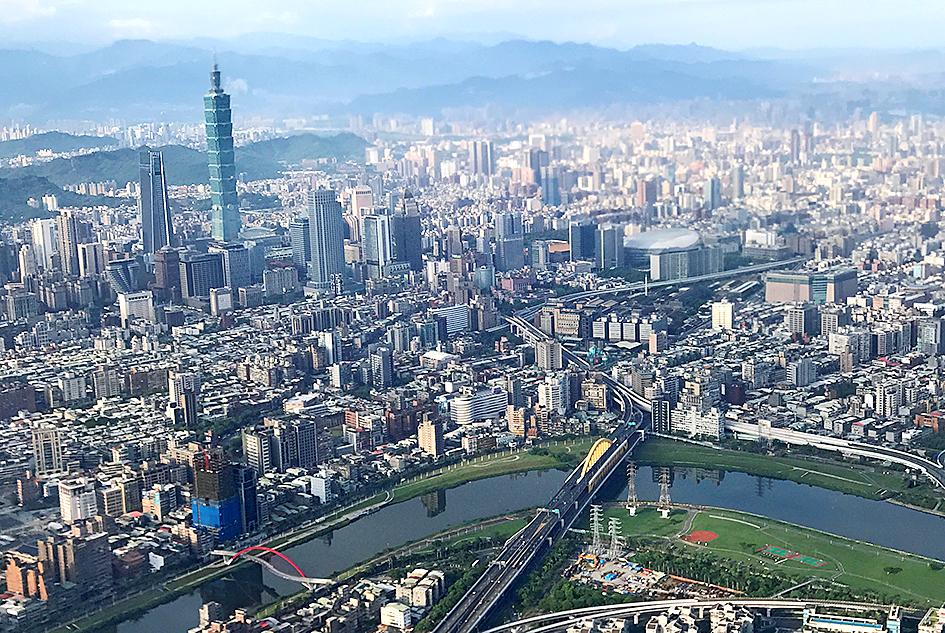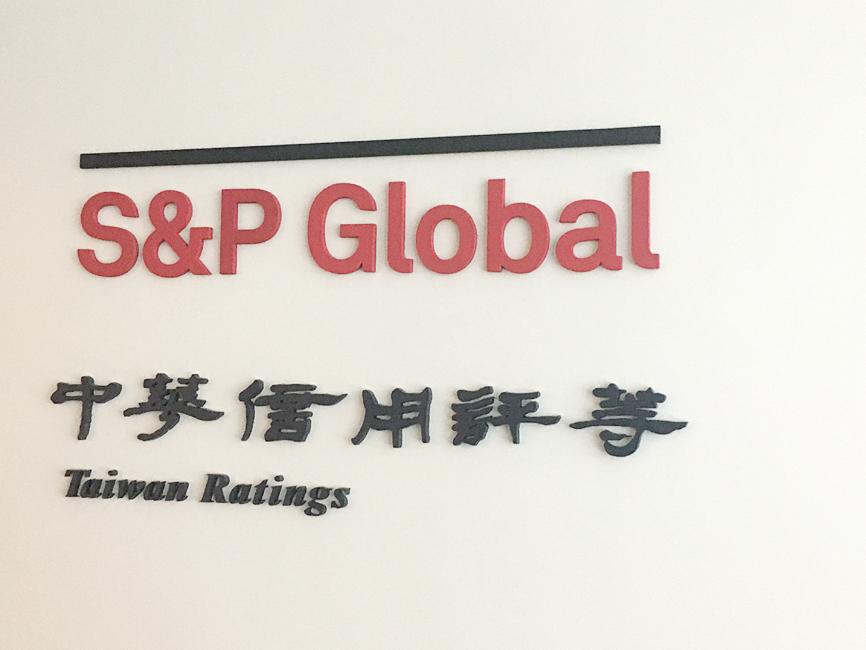S&P Global Ratings yesterday raised Taiwan’s credit rating to “AA+” from “AA” with a stable outlook, driven by expectations that global demand for semiconductor exports would offset risks associated with longstanding cross-strait tensions.
Taiwan previously held the “AA+” rating 21 years ago, when in 2001 it was downgraded to “AA-.”
The return is driven by expectations that the nation would continue to benefit from global digitalization and maintain healthy fiscal metrics over the next three to five years.

Photo: Reuters
“We anchor our ratings on Taiwan on its strong external position and robust economic support,” the international ratings agency said, projecting GDP growth of 2.8 percent for this year and 2.6 percent for next year and 2024.
Demand for chips used in vehicles, consumer electronics and office equipment remains robust, it said, adding that 5G network deployment, data processing, electric vehicles and artificial intelligence technologies are also driving momentum.
The nation’s top semiconductor foundries have been aggressively expanding their capacity to alleviate global supply shortages, with their efforts accounting for a 17.3 percent spike in private investment last year.

Photo: Cheng Chi-fang, Taipei Times
The investment surge is expected to continue this year in light of capital spending plans unveiled by major local firms, it said.
Taiwan’s monetary flexibility is strong, as the central bank has demonstrated sound management, which has kept inflation low and stable despite ample liquidity in the economy, it said.
The relatively flexible exchange rate for the local currency also helps cushion economic and financial shocks, the agency said, adding that Taiwan’s inflation has been among the lowest in Asia.
Inflationary pressure is slowly building amid surging global commodity prices, and although the central bank last month raised interest rates by 0.25 percentage points, the policy rate remains fairly low, it said.
Low funding costs and ample liquidity have kept the government’s interest burden at less than 5 percent of general government revenue in the past few years, it said.
Despite rising numbers of COVID-19 cases, Taiwan appears to be moving toward opening up, supported by high vaccination rates, acceptable burdens on the healthcare system and mostly mild symptoms among recent cases.
In the absence of lockdowns, private consumption could recover soon, and if the government lifts border controls, tourism flows could provide a further boost to the economy, it said.
In the long run, stable international trade and cross-strait relations would remain the linchpin for Taiwan’s economic performance, it said.
Continued access to customers and suppliers from the US and China are crucial for Taiwan’s export-driven manufacturers to remain competitive and productive, it added.
However, an aging population and low labor productivity growth could lead to increased social and welfare spending, a fast-growing item on the government’s budget.

US President Donald Trump yesterday announced sweeping "reciprocal tariffs" on US trading partners, including a 32 percent tax on goods from Taiwan that is set to take effect on Wednesday. At a Rose Garden event, Trump declared a 10 percent baseline tax on imports from all countries, with the White House saying it would take effect on Saturday. Countries with larger trade surpluses with the US would face higher duties beginning on Wednesday, including Taiwan (32 percent), China (34 percent), Japan (24 percent), South Korea (25 percent), Vietnam (46 percent) and Thailand (36 percent). Canada and Mexico, the two largest US trading

AIR SUPPORT: The Ministry of National Defense thanked the US for the delivery, adding that it was an indicator of the White House’s commitment to the Taiwan Relations Act Deputy Minister of National Defense Po Horng-huei (柏鴻輝) and Representative to the US Alexander Yui on Friday attended a delivery ceremony for the first of Taiwan’s long-awaited 66 F-16C/D Block 70 jets at a Lockheed Martin Corp factory in Greenville, South Carolina. “We are so proud to be the global home of the F-16 and to support Taiwan’s air defense capabilities,” US Representative William Timmons wrote on X, alongside a photograph of Taiwanese and US officials at the event. The F-16C/D Block 70 jets Taiwan ordered have the same capabilities as aircraft that had been upgraded to F-16Vs. The batch of Lockheed Martin

GRIDLOCK: The National Fire Agency’s Special Search and Rescue team is on standby to travel to the countries to help out with the rescue effort A powerful earthquake rocked Myanmar and neighboring Thailand yesterday, killing at least three people in Bangkok and burying dozens when a high-rise building under construction collapsed. Footage shared on social media from Myanmar’s second-largest city showed widespread destruction, raising fears that many were trapped under the rubble or killed. The magnitude 7.7 earthquake, with an epicenter near Mandalay in Myanmar, struck at midday and was followed by a strong magnitude 6.4 aftershock. The extent of death, injury and destruction — especially in Myanmar, which is embroiled in a civil war and where information is tightly controlled at the best of times —

China's military today said it began joint army, navy and rocket force exercises around Taiwan to "serve as a stern warning and powerful deterrent against Taiwanese independence," calling President William Lai (賴清德) a "parasite." The exercises come after Lai called Beijing a "foreign hostile force" last month. More than 10 Chinese military ships approached close to Taiwan's 24 nautical mile (44.4km) contiguous zone this morning and Taiwan sent its own warships to respond, two senior Taiwanese officials said. Taiwan has not yet detected any live fire by the Chinese military so far, one of the officials said. The drills took place after US Secretary